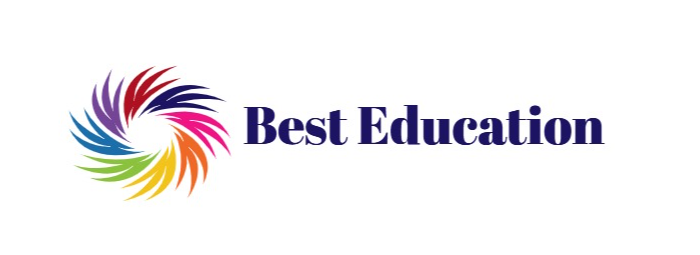Online Program The board organizations have assisted many schools with building on the web degree programs, however the area is giving indications of strain.
For over 15 years, a gathering of organizations known as Online Program The executives suppliers, or OPMs, have been assisting schools with building on the web degree programs. Furthermore, the vast majority of them have depended on a surprising plan — where the organizations set up the monetary support to assist universities with sending off programs in return for an enormous part of educational cost income.
A model has long cocked eyebrows in higher ed, and presently one is under a microscope from government offices. New guidelines viable in the U.S. Branch of Schooling could require OPMs to surrender income sharing and embrace the more customary expense for-administration, membership or different methodologies all things considered.
As a long-term overseer of online projects at schools, I have blended sentiments about closing down the model. What’s more, the inquiry reduces to this: Are schools prepared for a world without OPMs?
For a certain something, the quantity of universities that have worked with OPMs is huge. It’s a $4 billion industry, with around 550 U.S. universities joining forces with them and about a fourth of understudies in completely online 4-year programs signed up for them.
However, it ends up, shockingly, that it hasn’t been an entirely beneficial model for the organizations.
As per edtech specialist Phil Slope in a new blog entry, most income sharing endeavors have either lost cash or scarcely came to breakeven. Pioneers in the area, including 2U, Coursera and Keypath, never created a gain on the action, and Pearson and Wiley auctions off their OPM branch-offs as of late while the going got harsh.
It’s an OPM conundrum — as organizations lose cash, universities make it.
It just so happens, these endeavors frequently expected to bring in cash by developing huge enough to be sold at a higher cost than normal. 100 years back, English financial specialist John Maynard Keynes perceived that what makes the biggest difference is certainly not an organization’s main concern, yet the way in which the stock trade rewards it.
At the point when universities went to OPMs, they probably realized it was unpredictable. Imparting a portion of your educational cost income to your supplier is “over the top,” a senior New York College employee, Thomas D’Aunno, protested quite a while back, similarly as he was joining with an OPM contrary to what he would usually prefer.
“The inquiry was which OPM we planned to work with,” he told me with abdication, “not whether we planned to work with one.”
Re-appropriating versus Embracing
At the point when OPMs originally penetrated higher ed, persuading notable schools to reevaluate advanced learning, I was among the people who didn’t invite them, dreading they’d finish the work I thought more suitable for staff and school overseers to handle.
OPMs, I stressed, would subvert scholastic uprightness in advanced training. And, surprisingly, seriously disturbing, I dreaded they would hold universities back from building higher ed abilities expected to move interior advancement for a really long time.
My protest later mellowed, however, as I came to perceive that numerous universities required help to enter the computerized commercial center. Since many needed ranges of abilities and assets to do what was expected to move online forward, it seemed OK to go to business merchants to give higher ed time to gain advanced ed skill.
When they got its hang, I trusted, schools could then leap off their preparation haggles online altogether all alone.
That happened as of late at the College of Southern California when it dropped its drawn out agreement with 2U, a top, full-specialist co-op. USC’s retraction was only one reversal in a fountain of many universities escaping OPMs lately.
“2U had the innovation and the means from the get go,” Pedro Noguera, dignitary of USC’s Rossier Institute of Schooling, told me as of late. “In any case, throughout the long term, USC additionally acquired the ability to convey excellent web-based training. A course of action outlasted its motivation. Our staff were accomplishing practically everything, and 2U was getting too much, taking the greater part of educational cost income.”
As Mud Shirky, bad habit executive for artificial intelligence and innovation in schooling at NYU, told me: “A full-administration OPM gets you a heap of capabilities. Assuming that you go with an OPM, you get less change at your own organization. Assuming you do it without anyone else’s help, you take the more drawn out street, adjusting to web based learning.” Shirky likewise advised me that “Coronavirus provided personnel with some feeling of what online is about. At the point when staff acquired insight, online was demystified.”
Schools that rely upon OPM ventures to assemble, convey and advertise remote projects will not be exceptionally blissful assuming proposed government decisions produce results, since it will expect that they immediately concoct capital all alone. What’s more, nowadays, as everybody knows, universities don’t have piles of money lying around. As per Moody’s, “Organizations that have countless internet based understudies and depend on OPM accomplices to convey online administrations will probably be most impacted by the proposed direction.”
In the event that OPMs go under, a profound slice will be felt in far off training. At their best, OPMs, working in collusion with establishments like Georgia Tech, have helped lower educational cost and increment enlistment uniquely for excellent web-based specialized expert’s. Furthermore, OPMs opened more extensive opportunities for some establishments that coming up short on boldness or money to go online all alone.
In organization with many universities, OPMs enlisted huge number of working and other modern understudies, a considerable lot of whom could somehow never have graduated with a valued degree.
What the future holds?
The OPM business is really unsteady now, with 2U so unsafe, the U.S. government is concerned it will kick the bucket soon, leaving understudies abandoned. In any case, other top organizations are doing very well, with Coursera, Keypath and Scholarly Associations revealing strong outcomes.
To expand their compass and try not to be burdened with a solitary line of business that probably won’t work out, most large OPMs have become differentiated, running a blend of product offerings. Coursera, for instance, with its stunning, overall base of 142 million students to a great extent in its library of online contributions, offers many corporate and government web based instructional classes as well as many non-credit proficient endorsements.
In any case, it’s hazy whether OPMs can go on with their certificate conceding business without income sharing courses of action.
In the event that OPMs disappear in colleges, there’s an opportunity they may at this point not be vital at certain schools and colleges, particularly when each educational cost dollar stays nearby. Following the USC model, many may currently be ready to carry on all alone.
Also, there’s even the remotest chance they will not be compelled to disappear by any stretch of the imagination. The Schooling Division may yet bow to scholarly resistance, and in a longshot, forego its proposed rules to shut OPMs of down at the country’s colleges.
In any case, it appears as though OPMs are not lounging near, trusting that the hatchet will fall. To get away from proposed unofficial laws that might boycott income sharing, a few merchants are now offering level expenses and other installment choices. Schools aren’t waiting around either, with some setting up inner internet based groups, skipping OPMs out and out.




